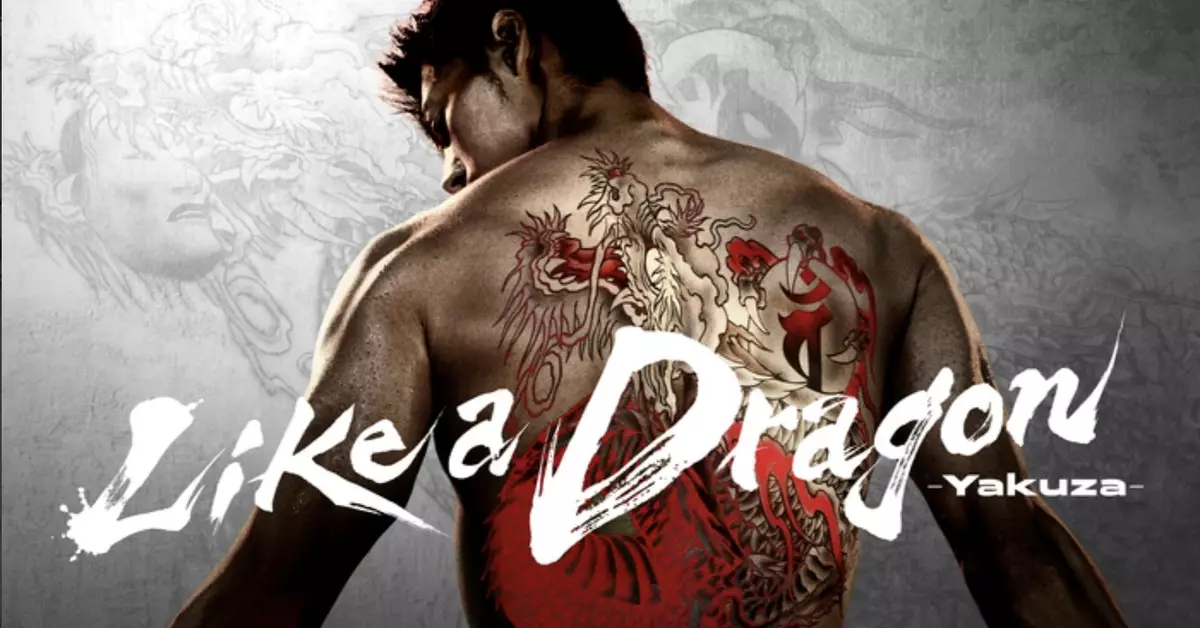In recent years, the challenge of adapting beloved video game franchises into viable television series has been met with both anticipation and skepticism. The latest entrant to this genre, Amazon Prime Video’s “Like a Dragon: Yakuza,” stirs a complex mix of excitement and reservation among fans of the original video games. Unlike many adaptations that strive for fidelity to their source material, “Like a Dragon” boldly carves its path by merging storytelling techniques and character arcs that diverge significantly from what players might expect. While some viewers may initially approach it with a desire for faithful representation, a deeper exploration reveals the show’s distinct narrative charm that sets it apart.
“Like a Dragon” stands out with its innovative storytelling mechanism, weaving together two timelines set in 1995 and 2005. The show’s protagonist, Kazuma Kiryu, played by Ryoma Takeuchi, embarks on a journey that encapsulates both his meteoric rise within the Yakuza and the consequential fallout that arises a decade later. The alternating timelines create a dynamic, almost puzzle-like structure that not only propels the narrative forward but also enriches character relationships and developments through a lens of nostalgia and loss. As audiences toggle between the vibrancy of Kiryu’s early days and the stark, shadowy remnants of his past, they are invited to piece together a tale fraught with betrayal, ambition, and the search for identity amidst chaos.
This episodic structure fosters a deep engagement, allowing viewers to experience Kiryu’s evolution in a multifaceted way. Early episodes depict a tight-knit community built upon familial bonds, while the later timeline reveals the unraveling of these connections—creating a sharp contrast that is visually and emotionally striking. Instead of spoon-feeding information, the show demands that audiences actively participate in unraveling Kiryu’s narrative, thereby increasing investment in the unfolding drama.
One of the most substantial departures from the “Yakuza” games is the portrayal of violence. Fans of the franchise expect a certain theatricality when it comes to conflict, typically characterized by street brawls and the comedic absurdity that often accompanies them. However, “Like a Dragon” opts for a grittier depiction that carries a heavier weight. Murders and gunfire become commonplace, contributing to an atmosphere that is far more intense than the games. The stark realism serves as a wake-up call, as viewers are confronted with the brutal truths of mob life, rather than the exaggerated slapstick violence that the games often embrace. This transformation may leave some fans uncomfortable, yet it successfully distinguishes the show from its source material by integrating real stakes into the narrative.
Although the show effectively shifts the tone to accommodate its more serious narrative, it simultaneously sidesteps the lighter, quirky aspects of the “Yakuza” franchise that made it beloved among gamers. The games are known for their humorous interludes—such as outrageous side quests and interactions with eccentric characters. However, “Like a Dragon” follows a distinct market-driven narrative style that primarily favors drama over comedy. While this approach enhances the overall gravity of the storyline, viewers may find some sections a bit tiresome, especially when the pacing slows in the later episodes.
The absence of comedic relief might lead to tonal monotony, which could alienate some audiences looking for levity amidst the drama. In this sense, while “Like a Dragon” strives for character depth and emotional engagement, the balance between humor and tragedy feels slightly skewed. This is a critical observation in the world of television adaptations—where retaining the spirit of the source material without losing the essence of the original characters is a delicate dance.
What “Like a Dragon: Yakuza” ultimately demonstrates is that successful adaptations do not need to align perfectly with their source materials; rather, they should aim to capture the essence of the story and its characters while exploring new creative horizons. By not succumbing to the pitfalls of mere fan service, the series runs the risk of alienating some viewers who crave familiarity. Yet, for those willing to delve beyond their preconceived notions, the show offers a fresh perspective that challenges traditional storytelling norms within the genre.
Ultimately, while it may not emulate the “Yakuza” games in every aspect, “Like a Dragon” invites viewers to experience a narrative that reflects the complex dynamics of familial ties, ambition, and the human condition, setting the stage for interesting discussions about what makes an adaptation resonate with both longtime fans and new audiences alike. As the landscape of video game adaptations continues to evolve, “Like a Dragon” could pave the way for future projects striving to create their unique narratives without being shackled by the expectations of their origins.

